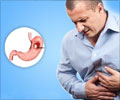Approximately 5-7% of people in the world have GERD symptoms everyday. This includes adults and children. Gastroesophageal Reflux Disease Awareness week was first observed in November 1999.
November 18 – 24
Gastroesophageal Reflux Disease Awareness week was first observed in November 1999.Thanksgiving falls during the ’Gastroesophageal Reflux Disease Awareness Week’. Stuffed turkey looks wonderful on the Thanksgiving dinner table, but stuffing one’s stomach could lead to acid reflux and eventually cause serious gastrointestinal disorders.
Prevalence
• Approximately 5-7% of people in the world have GERD symptoms everyday. This includes adults and children.
• About 21 million people in America have this disorder.
• 20-40% of Americans have GERD symptoms at some point of their life.
• The most common symptom with GERD is heartburn. Roughly 19.8% of the patients experience heartburns weekly.
• Only half of these patients are treated.
• In India, the prevalence rate is unfortunately very high in children [including newborns]. 60-80% of children with GERD have esophagitis [inflammation of the esophagus].
Gastroeshophageal Reflux Disease [GERD]
Gastroesophageal reflux disease is a common, chronic disorder where the lower esophageal sphincter (a band of muscle that prevents back flow) fails to work properly. Food from the stomach flows back to the esophagus. These contents are acidic and irritate the esophagus. Prolonged exposure causes damage to the esophageal tissue and leads to complications.
Patients present with chest pain due to acid reflux. It is considered as the most common differential diagnosis to angina. Some of the other symptoms are-
• Excess of saliva production
• Sore throat
• Bad breath
• Sour taste
GERD and acid reflux at night causes consequential sleep impairment.People having gastrointestinal disorders are less productive in their daily activites that sums up to a minimum of a day’s work lost in a week’s time.
Upper GI endoscopy and histology can confirm the diagnosis of GERD. There are other tests to diagnose GERD, though not widely performed in all countries.
Gastroesophageal Reflux disease can be treated by medicines and surgery. Over the counter medications can relieve symptoms temporarily. Lifestyle modifications [food and/or activity] can also help reduce symptoms.
Treatment for GERD focuses on-
• Reducing or controlling symptoms
• Preventing complications
• Healing tissue damage
Recently Found
• Chronic heartburn due to gastroesophageal reflux disease may result in Barrett’s esophagus, which in turn is a huge risk factor for esophageal cancer.
• One or more genes are being linked with GERD. KLA-BO7 allele [or genes closely linked to it] is one of the key genes involved in the development of GERD. This gene is found mostly in Caucasians and South Asians and infrequent in Orientals.
Unlike many of the metabolic diseases that are on the rise, GERD is not merely caused by an individual’s lifestyle. Most of the common symptoms are neglected and not cared for. When unattended, it could lead to serious complications. It is therefore necessary to realize the symptoms of GERD. Self medication is not advisable. GERD is a treatable condition. Even when symtoms are under control, treatment should be continued.
Be vigilant. When symptoms occur, consult your doctor. Initiate appropriate treatment as soon as possible and confine the acid to where it belongs [stomach].
Source-Medindia
PMA/S











